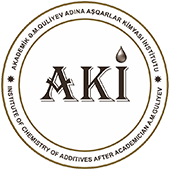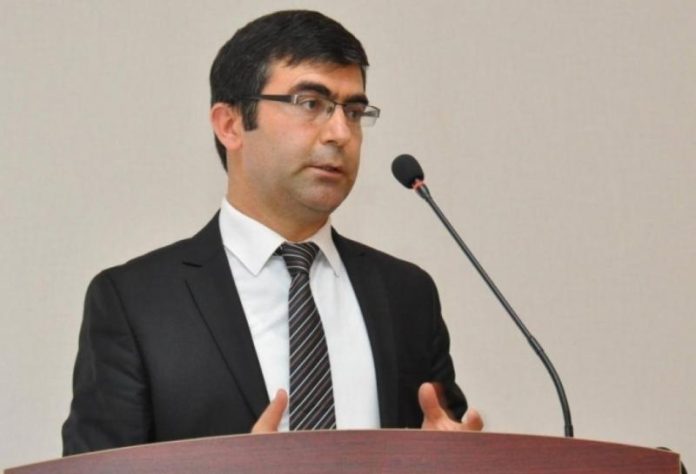Such a thought as “Science should be in the institute, and education in the university” is wrong
“Our country has enough research institutions specializing in various fields of science. But they either have no connection with each other or with universities, or are in a fragmented state. Siled means that only scientists from some institutions communicate individually with colleagues from other institutions.”
The executive director of Academician A.Guliyev Institute of Chemistry of Additives of the Ministry of Science and Education, Doctor of Chemical Sciences, Professor Afsun Sujayev said this in his interview with the Azerbaijan Muallimi newspaper.
According to him, the main reason for this is due to the fact that in Soviet times, academic science was completely separated from education in the form of the Academy of Sciences.
“In other words, such a thought as “Science should be in the institute, and education in the university” is wrong. In the United States or most European countries, science and education are carried out in an integrated form, mainly in one place – in research universities. However, not every higher education institution can be called a research university. The status of a “research university” is given to those universities that have the appropriate infrastructure, an electronic library, a modern material and technical base for conducting fundamental, applied and experimental scientific research and a center for the collective use of scientific equipment, where 20-30 percent of the articles published in the country in journals included in international scientific databases (“Web of Science”, “Scopus”) are published by university employees, where specialization at the master’s level is internationally accredited, universities that have won a lot of grants in the field of science from local and international donors, have scientific connections with the world’s leading universities and research centers, conduct joint research on modern and relevant scientific topics with famous scientists around the world. By revising we see that the number of operating universities in our republic that meet these requirements does not exceed two or three.”
A practical step towards becoming a “research university”
A.Sujayev notes that if today the majority of bachelors and postgraduates who come from universities to scientific institutions for short-term internships are not aware of scientific research, then the connection between research institutes and universities was weak. From this point of view, the signing of memorandums on cooperation between individual research institutes and universities through the State Agency for Science and Higher Education of the Ministry of Education and Science and the transition from words to deeds will be a practical step towards the transition of an educational institution into a real “Research University”.
As the Institute of Chemistry of Additives, we, not in words, but in deeds, give preference to cooperation with other research institutes (Institute of Petrochemical Processes, Institute of Catalysis and Inorganic chemistry, Institute of Polymer Materials, Institute of Molecular Biology and Biotechnology) and universities (Baku State University, Baku Engineering University). Imagine that in the 4-5 joint international research groups that we have created with the world’s leading scientific centers, not only scientists from the Institute of Chemistry of Additives are represented, but also leading scientists from our other institutes, especially young scientists and specialists. By acting together as a scientific institution and a university, higher scientific results can be achieved.”
Regarding the issue of a very low level of interaction between scientific institutions, A.Sujayev notes that these ideas are completely true:
“For example, in many cases, scientists at one institute do not know what research their colleagues at other institutes are doing. Sometimes we send them to scientific centers in Turkey, Portugal, Russia and other countries to conduct physical, chemical and biological analyzes that are impossible in our country, but in Azerbaijan there are research institutions that conduct these analyzes, but our scientists do not know about them”.
According to A.Sujayev, the main ways to strengthen interaction between scientific institutions should be to continue the necessary reforms in science, accelerate the process of integration of Azerbaijani science into world science, create complete unity with education, popularize and promote science, attract talented youth to science:
“Of course, there were strategies and action plans related to the development of science in our country in the areas listed above, which can be compared with the most advanced similar legislative documents in the world in terms of legislation. But we cannot fully describe these ideas in connection with the mechanisms for their implementation. I believe that a new strategy for the joint development of science and education should be developed. This document, when fully formed, must correspond to modern world trends, take into account new realities, as well as preserve our scientific and educational values, historical traditions and pass them on to future generations.”
The executive director notes that since science and education have no borders, they do not have a specific homeland:
“It goes without saying we say that science originated in the East and spread to the West, but in our modern era, science and education are secular. We must be an integral part of it. In this regard, the Ministry’s first steps to provide access to global scientific databases and global electronic scientific libraries of all research institutes and universities deserve praise. It should be clearly emphasized that the cooperation of our scientists with such authoritative databases as “Web of Science” and “Scopus” has become a decisive factor in raising Azerbaijan’s scientific indicators to a leading position in the South Caucasus.
Interdisciplinary research needs to be expanded
A.Sujayev believes that in continuation of this work it is necessary to increase the number of international laboratories in universities and research institutes collaborating in the scientific field, as well as to expand joint and interdisciplinary research in them:
“As one of the main means of integrating Azerbaijani science into world science, it is necessary to achieve the creation of international laboratories in priority areas in all institutes of exact and natural sciences. As is known, the joint international laboratories existing at the Institute of Physics, the Institute of Catalysis and Inorganic Chemistry, the Institute of Molecular Biology and Biotechnology, the Institute of Genetic Resources, and the Institute of Geology and Geophysics have fully justified themselves. The results obtained in the course of research carried out in these laboratories have a significant share in the scientific indicators of these institutes.
In institutions where it is not possible to establish international laboratories, the involvement of scientists in joint international research groups should be encouraged. A convenient method for this is to use all the capabilities of outstanding Azerbaijani scientists working in the world’s leading scientific centers. They themselves have a positive attitude towards such proposals and from time to time come up with similar initiatives. Young scientists and specialists selected in certain priority areas can be sent to our famous scientists for short- and medium-term internships.
Science needs to be popularized
Afsun Sujayev notes that today it is impossible to imagine and develop science and education separately from each other. So what to do?
“I believe that first of all, in universities that begin joint cooperation, basic departments in relevant specialties must be created, and university students’ classes related to scientific research must be conducted in laboratories. In order to transform formally existing student scientific societies in universities on the eve of big science, research institutes collaborating with higher educational institutions should conduct joint scientific seminars, interactive discussions, conferences, book exhibitions, round tables on modern and relevant topics for talented students who show great interest in science, organize scientific and practical seminars, open popular science lectures, debates, master classes and trainings, as well as inform about the scientific activities of Nobel Laureates.
The unity of science and education should be not only in universities, but also in secondary schools. In each of our regions there are especially talented children, and it is necessary to develop programs that can find them from younger age groups and direct them into science. The annual republican scientific competitions “Scientists of Tomorrow” once again confirm this.
Academic institutions can organize various scientific competitions, subject evenings, science days and other motivational events, at least in schools in the relevant field. We managed to do this in the field of culture with the support of the Heydar Aliyev Foundation in this and other forms, but such programs are also necessary in the field of science. This should not mean popularizing science. Because in science there should be not masses, but talents, that is, fans of science.
Finally, science should be popularized. As they say, television programs should be developed that can convey scientific results obtained at universities and institutes in a popular language that is understandable to the masses. In this case, we will soon turn our country into a leading center of science and achieve the creation of new scientific schools.”
Oruj Mustafayev


